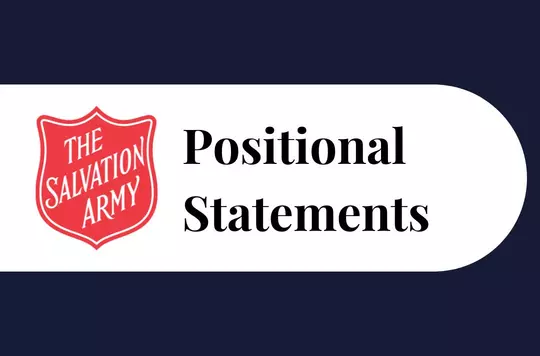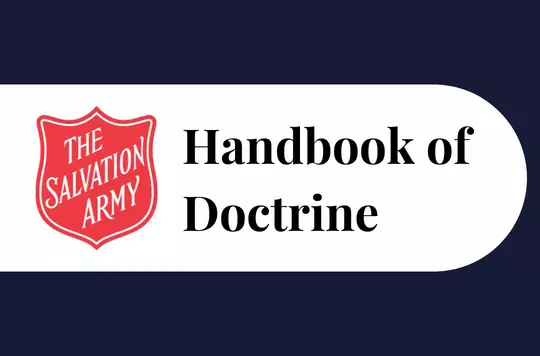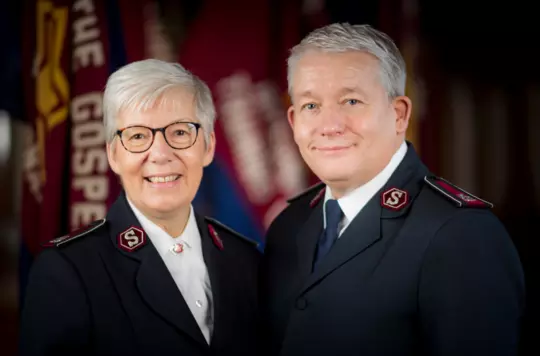8 April 2025
Protecting vulnerable people
Lieut-Colonel Nick Coke

As the assisted suicide Bill returns to parliament, Lieut-Colonel Nick Coke highlights the Army’s concerns.
On 16 May, the full House of Commons will have its next debate and vote on the Terminally Ill Adults (End of Life) Bill. This Bill, which proposes to allow adults who are terminally ill to be helped to end their lives, was introduced last autumn and has spent two months being revised by a committee of MPs. The Commons will consider these amendments and decide whether the Bill should go to the House of Lords for further consideration.
Before MPs voted in favour of the Bill last November, I wrote in Salvationist that it ‘raises serious questions for society and for us as Christians’. Despite the amendments, I believe the Bill still does.
The Bill sets out procedures intended to ensure people are only able to get help with suicide if they are terminally ill and have a ‘clear, settled and informed wish’ to die. A person asking for help with suicide would require discussions with two separate doctors and to have their request considered by a lawyer, psychiatrist and social worker. It would also be a criminal offence to coerce or pressurise a person into seeking assisted suicide.
What, then, is wrong with the Bill? As a church, The Salvation Army in the UK and Ireland opposes assisted suicide, a stance outlined in a positional statement published in 2015. This is partly because, as Christians, we believe that life is a precious gift from God (see Genesis 1:27). But it is also because of genuine concerns that legalising assisted suicide would make some people feel that they have to decide whether their life is still worth living, or even justify deciding not to choose suicide.
For all the safeguards in the Bill, it cannot legislate for the complexities of life. Seeing the pressures faced by loved ones, the NHS and social services, people with a terminal illness could feel – or be made to feel – they are a burden. We have heard in conversations with people in recent months that, for some, having the choice to die could easily turn into them feeling they have a ‘duty to die’.
In our unfair and unjust society, that risk would not be evenly distributed. If you live in an area with good palliative and hospice care, and have money and social resources, it is easier to maintain a reasonable standard of comfort and dignity in your last days. What if you do not, or you are worried about using up the few resources your family has?
The Bill assumes that we can all make choices free from societal or material pressures, but we know that, for many people, this is not the reality. The Army’s value of compassion calls us all to serve others with a bias to the poor and marginalised – these are exactly the people the Bill, even with amendments, seems to overlook.
This is why the Army in this territory continues to campaign against the Bill: to protect vulnerable and disadvantaged people from feeling pressured to end their lives as the only way to alleviate pain. The Army is also campaigning for the government to secure consistent funding for palliative care that is accessible to all.
This is a complicated issue and people’s views will be shaped by their experiences. The Army’s positional statements provide guidance to members, but it is understood that individuals may have different views and the Army does not condemn anyone who does. There are Christians and, indeed, Salvationists who see no conflict between their faith and assisted suicide.
You may reach a different conclusion from me about this Bill but, as we lean into these complicated conversations with grace, let’s remember our Movement’s bias to vulnerable and marginalised people.
Reflect and respond
- Read the territory’s full positional statement – see below.
- Reflect on pages 43 to 50 of the Handbook of Doctrine – see below.
- If you want to add your voice to the Army’s campaign, write to your MP.
- Read a pastoral letter from Territorial Leaders Commissioners Jenine and Paul Main.
- Find prayer prompts to pray for God’s guidance for politicians debating the Bill and for our response as Christians.
Written by

Lieut-Colonel Nick Coke
Secretary for Communications, THQ

UKI Euthanasia, Assisted Suicide and Living Wills Positional Statement
The Salvation Army in the United Kingdom and Ireland's positional statement.

The Salvation Army Handbook of Doctrine
Explore the 11 biblically based Salvation Army articles of Christian faith.
Discover more

The Salvation Army is calling on the UK government to oppose assisted suicide and protect vulnerable people.

Territorial Leaders Commissioners Jenine and Paul Main share a pastoral letter on the topic of assisted suicide.

Helping Salvationists engage in moral and social issues in their communities.

We speak into areas of public policy to support change for the benefit of some of the most disadvantaged people in our communities.